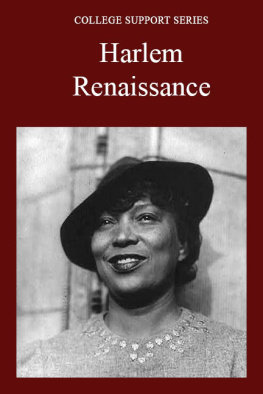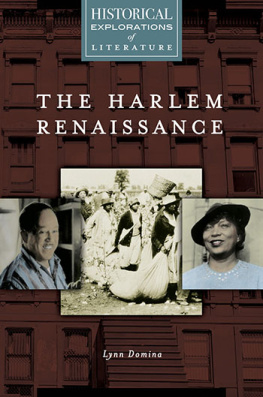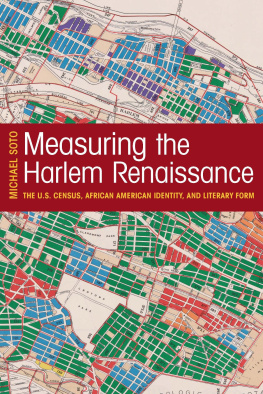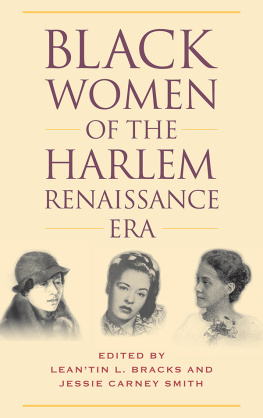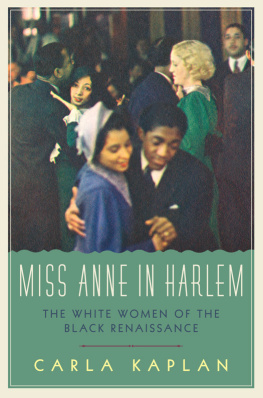Library of Congress Cataloging-in-Publication Data
Names: Honey, Maureen, 1945- author.
Title: Aphrodites daughters : three modernist poets of the Harlem Renaissance / Maureen Honey.
Description: New Brunswick, New Jersey : Rutgers University Press, 2016. | Includes bibliographical references and index.
Identifiers: LCCN 2015037353| ISBN 9780813570792 (hardback) | ISBN 9780813570785 (pbk.) | ISBN 9780813570808 (e-book (web pdf))
Subjects: LCSH: American poetryAfrican American authorsHistory and criticism. | American poetryWomen authorsHistory and criticism. | Harlem Renaissance. | African American poets20th century. | Women poets, American20th century. | African American womenNew York (State)New YorkIntellectual life. | Modernism (Literature)New York (State)New York. | African-American artsNew York (State)New York20th century. | Grimke, Angelina Weld, 18801958Criticism and interpretation. | Bennett, Gwendolyn, 19021981Criticism and interpretation. | Cowdery, Mae V. (Mae Virginia), approximately 19091953Criticism and interpretation. | BISAC: BIOGRAPHY & AUTOBIOGRAPHY / Women. | LITERARY CRITICISM / American / African American. | SOCIAL SCIENCE / Womens Studies. | SOCIAL SCIENCE / Ethnic Studies / African American Studies. | LITERARY CRITICISM / Poetry. | LITERARY CRITICISM / Women Authors. | HISTORY / United States / 20th Century.
Classification: LCC PS310.N4 H66 2016 | DDC 811/.5209928708996073dc23
LC record available at http://lccn.loc.gov/2015037353
A British Cataloging-in-Publication record for this book is available from the British Library.
Copyright 2016 by Maureen Honey
All rights reserved
No part of this book may be reproduced or utilized in any form or by any means, electronic or mechanical, or by any information storage and retrieval system, without written permission from the publisher. Please contact Rutgers University Press, 106 Somerset Street, New Brunswick, NJ 08901. The only exception to this prohibition is fair use as defined by U.S. copyright law.
Visit our website: http://rutgerspress.rutgers.edu
Manufactured in the United States of America
You are like a pale purple flower
In the blue spring dusk......
You are like a yellow star
Budding and glowing
In an apricot sky......
You are like the beauty
Of a voice......
Remembered after death......
You are like thin, white petals
Falling
And
Floating
Down
Upon the white, stilled hushing
Of my soul.
ANGELINA WELD GRIMK
I love you for your brownness,
And the rounded darkness of your breast;
I love you for the breaking sadness in your voice
And shadows where your wayward eyelids rest.
GWENDOLYN B. BENNETT
No more
The feel of your hand
On my breast...
Like the silver path
Of the moon
On dark heaving ocean.
MAE V. COWDERY
From the moment I first encountered the vast treasure trove of womens poetry in New Negro journals and anthologies of the Harlem Renaissance over twenty years ago, three poems lodged in my mind with particular staying power. Angelina Weld Grimks El Beso took my breath away as the scene moved from twilight calm to a womans provocative laughter to her alluring mouth to a moment of mad surrender and finally to sobbing regret before returning to quiet twilightall in the space of sixteen lines. Gwendolyn B. Bennett made me shiver with her one-stanza portrait of a strangely cool night in midsummer when far-off laughter dissolves into crystal tears in Nocturne. Mae V. Cowdery riveted my attention when she opened Want with a speakers startling desire to take down heavens stars and bury her face in them. The directness of their verse erased the many decades that separated it from me; their images were haunting. There was something so palpably real in their lyric poetry that I felt its modernity and relevance to my own era. This study grows out of that early connection and the desire it created to find out when, where, and how this lyricism was born.
Of immense help to me as I moved forward in this journey was my editor, Leslie Mitchner, who believed in the project from its very beginnings and whose enthusiasm lifted my flagging spirits as the writing proceeded. Her guidance throughout has made this a far better work. The perceptive comments of Cherene Sherrard-Johnson were also tremendously helpful as I honed the core of my analysis and forged links between my three writers. The book has been made far better by the meticulous copyediting of Kate Babbitt and the fine photograph production of Anne Hegeman. Carrie Hudak provided much-needed support throughout the publication process. Many thanks to the design team for this books gorgeous cover.
I am indebted to the groundbreaking scholarship on women of the Harlem Renaissance of Gloria Hull, Carolivia Herron, Sandra Y. Govan, Cheryl A. Wall, Lorraine Elena Roses, Thadious Davis, Deborah McDowell, Angela Y. Davis, George Hutchinson, Cary Nelson, Nina Miller, Melissa Girard, Cynthia Davis, Verner D. Mitchell, Hazel Carby, Claudia Tate, Yemisi Jimoh, Carla Kaplan, Mary Helen Washington, Robin Hackett, Joanne Braxton, Henry Louis Gates Jr., and Hortense Spillers, among others. Without their trenchant investigations, I would have had very little notion of how to blend literary analysis with biographical history or connect Harlem Renaissance women poets to modernism. Arnold Rampersad, Amritjit Singh, David Levering Lewis, Adam McKible, James Smethurst, Seth Moglen, Mark Sanders, and Houston Baker Jr., among many others, have provided foundational insights into the Harlem Renaissance; without their work, this study would be much diminished. The contributions of Lillian Faderman, Laura Doan, Eric Garber, Karla Jay, A.B. Christa Schwartz and George Chauncey to LGBT history were essential to my understanding of Grimks and Cowderys erotic poetry, as was the foundational work on black womens poetry by Barbara Smith, Ann Allen Shockley, June Jordan, Pat Parker, Audre Lorde, Gwendolyn Brooks, Sonia Sanchez, Cheryl Clarke, Nikki Giovanni, Rita Dove, and Maya Angelou.
Several people encouraged me during my research and writing with their enthusiasm for my subject, particularly colleagues in the English Department at the University of Nebraska-Lincoln. Of particular help were my talks with Melissa Homestead about recovery work over many lunches and her suggestions of fruitful approaches to my biographical material. Gwendolyn Foster provided key advice and moral shoring-up, especially as I went through the copyediting. I am also immensely grateful for the support of Kwakiutl Dreher, Amelia Montes, Joy Castro, Grace Bauer, Julia and Dominique Cheenne, who all sustained me throughout the many years I worked on this project. Other colleagues in the English Department to whom I am indebted include Ken Price, Stephen Behrendt, Gregory Rutledge, Stephen Buhler, Wheeler Dixon, Kwame Dawes, Chigozie Obioma, Ted Kooser, Guy Reynolds, Jack Vespa, Pete Capuano, Julia Schleck, Laura White, Roland Vgs, Fran Kaye, Tom Lynch, Tom Gannon, Stacey Waite, Shari Stenberg, June Griffin, Steve Ramsay, Rhonda Garelick, and Adrian Wisnicki. All of them encouraged me with their own excellent work and interest in my project. I am most grateful to my chairs, Marco Abel and Susan Belasco, for providing the research assistance, personal support, and faculty leaves I needed to complete this book. Other treasured friends and colleagues who have provided crucial personal support for my work include Venetria Patton, who is my home away from home; Jeannette Jones; Anna Shavers; Helen Moore; George Wolf; Emily Levine, Joyce A. Joyce; Sharon Harris; Myriam Chancy; Alpana Sharma; Linda Pratt; Barbara DiBernard; Julia Ehrhardt; Greg Kuzma; and Hilda Raz. Marly Swick, Judy Slater, Suzy Beemer, Steven Aldrich, Maureen Sullivan, Joan Nelson, Olivia Petrides, Sharon Monod, and Devon Niebling are essential to my heart and soul. Many thanks to Martha Allen and Jonathan Zeitlin, whose hospitality enabled me to do research at Howard University and whose insightful comments about the Grimk brothers moved my project in dynamic new directions. I also want to thank Eric Mock and Louella Berliner for their hospitality in New York City when I was doing research at the Schomburg Center. They made my stay in the Big Apple wonderfully pleasant. My brilliant niece, Emily Hamilton-Honey, provided me with essential information about nineteenth-century boarding schools at a key moment in my work. A big thank you to my reading friends Ardy Cunningham, Cindy Cerny, and Peggy Olson.




